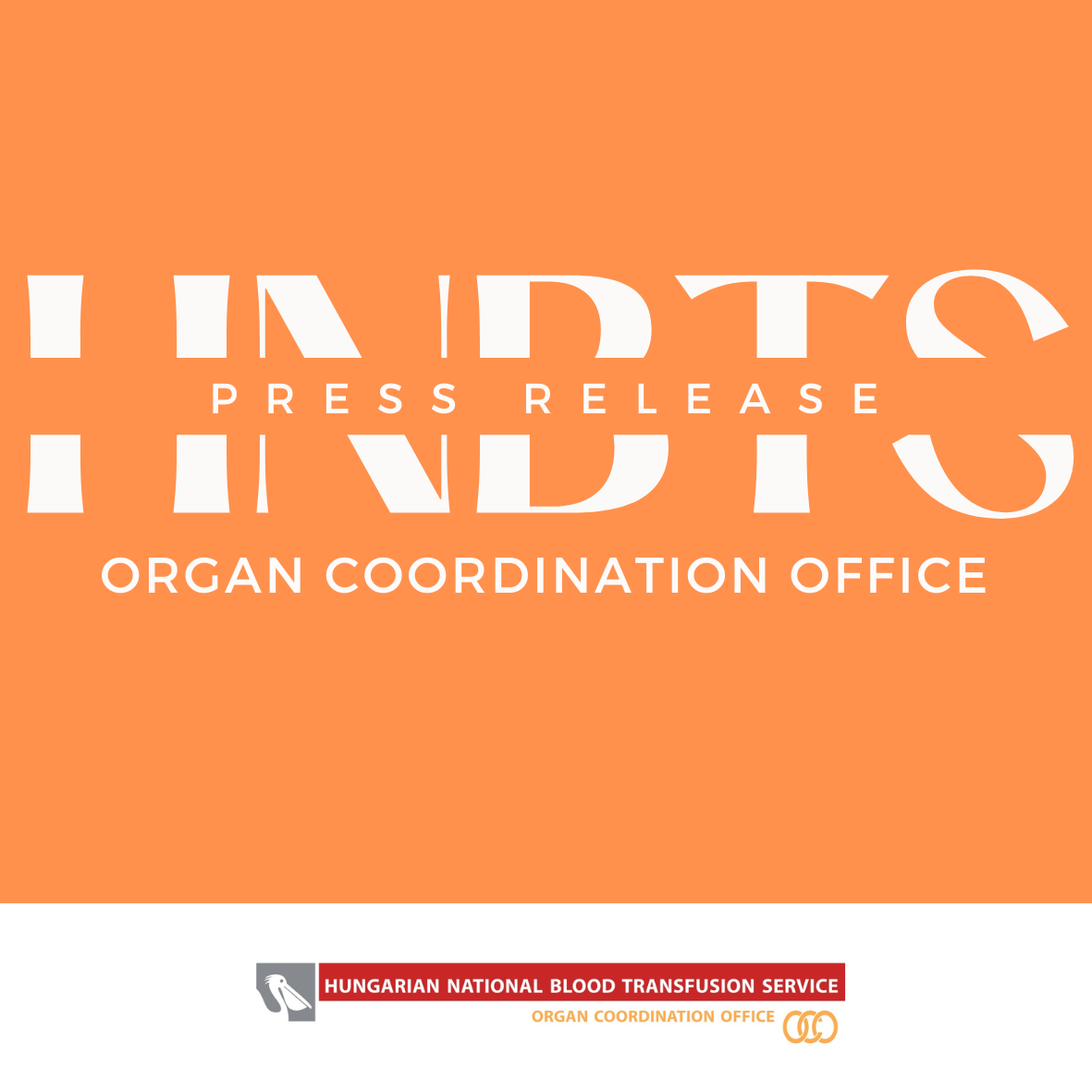 Expanding Opportunities in Living Donor Kidney Transplantation
Expanding Opportunities in Living Donor Kidney Transplantation
Budapest, July 21, 2025
Amendments to the living donor kidney exchange program regulations have been adopted, increasing patients’ access to donor organs and transplant care. Dr. Sándor Mihály, Director of the Transplantation Directorate at the Hungarian National Blood Transfusion Service, spoke about the opportunities became available by the changes.
The amendment to the regulation on living donor kidney exchange, also known as cross-over donation, was published in Issue 84 of the Hungarian Gazette on July 16, 2025, and entered into force the next day.
“Paired-exchange donation is a new option for patients in need of a kidney transplant who have living donor, but the transplant cannot be performed due to medical incompatibility between the donor and the recipient,” said Dr. Sándor Mihály. “In such cases, transplantation is possible by finding another donor-recipient pair in a similar situation and exchanging kidneys between the pairs.”
Hungary launched a national paired exchange living kidney donation program in 2024, based on similar European initiatives. The program initially enabled kidney exchanges between two pairs to be performed in one transplant institution, in accordance with regulations at the time. All four Hungarian Kidney Transplantation Waiting List Committees, the four Kidney Transplant Centers, the Transplantation Directorate and the Transplant Immunogenetics Laboratory of the National Blood Transfusion Service (HNBTS) participated in the development of the national program, with the support of the Transplantation Section of the Health Professional College.
“Compatible pairs are selected by a computer algorithm based on predefined criteria,” explained Dr. Mihály. “This increases the number of transplants performed, shortens waiting times, improves the quality of life of patients, and often results in better immunological matching than would be possible between the original donor-recipient pairs. The altruistic intention of the donors is also fulfilled, albeit indirectly.”
In order to increase the efficiency of the program, the Hungarian National Blood Transfusion Service submitted a legislative amendment, which was accepted by consensus of all relevant professional stakeholders involved.
“According to the new regulation, transplants can now be performed not only between two pairs but among multiple pairs in closed circle. This greatly increases the likelihood of finding optimal matches,” continued Dr. Mihály. “Furthermore, the amendment allows for transplants to be performed in more than one center. By quickly transporting donor kidneys, patients and their donors can remain at the center that originally placed them on the waiting list.”
“Another important change is that participation in the program is no longer limited to medically incompatible donor-recipient pairs. From now on, any donor-patient pair can join voluntarily in the hope of finding a better match.” The increase in the number of participating pairs significantly increases the likelihood of finding compatible donor-recipient matches. Applications of pairs are submitted independently to the ethics committee of the centers to ensure anonymity. As before, the surgeries must be performed simultaneously, as notarized organ donation declarations and written patient consents can be withdrawn at any time without formal requirements – this aspect of the regulation remains unchanged.
The amendment brings Hungarian regulation in line with widely accepted European practices and further improves access to life-saving living donor kidney transplantation.
“More transplants mean more lives saved,” emphasized Dr. Mihály.
Further information on the national paired exchange living kidney donation program is available at www.ovsz.hu/keresztdonacio
Hungarian National Blood Transfusion Service, Transplantation Directorate
2025. 07. 28.